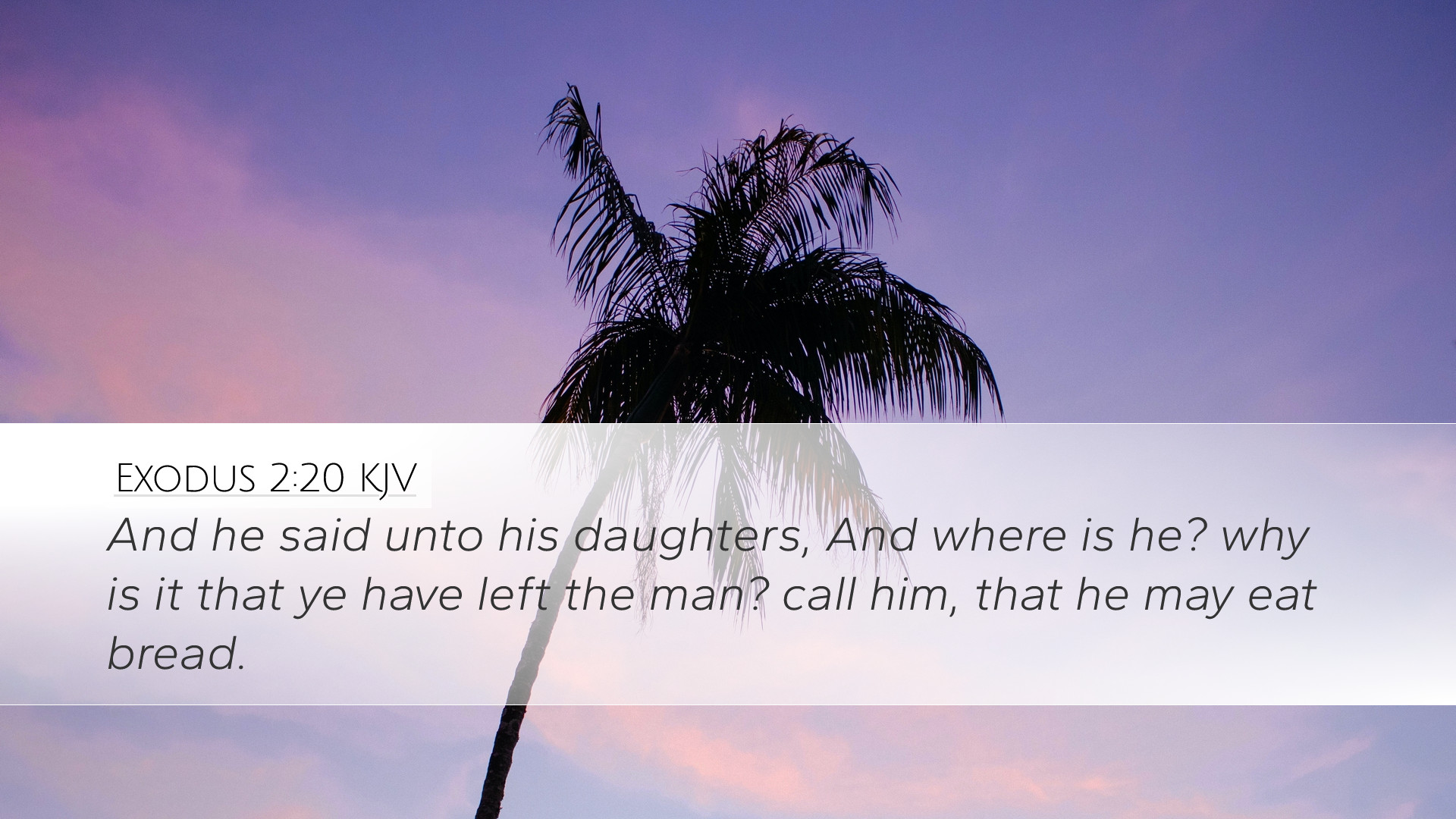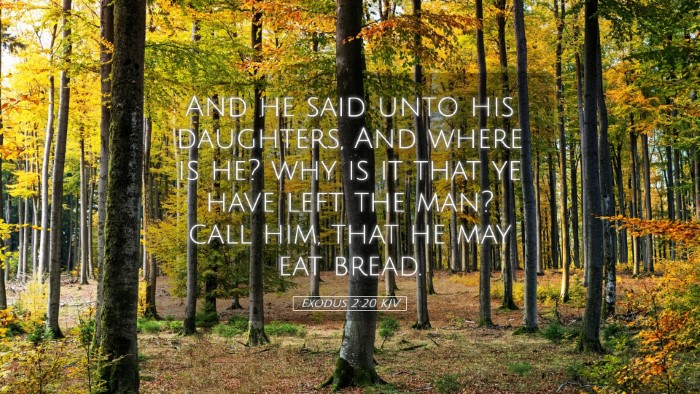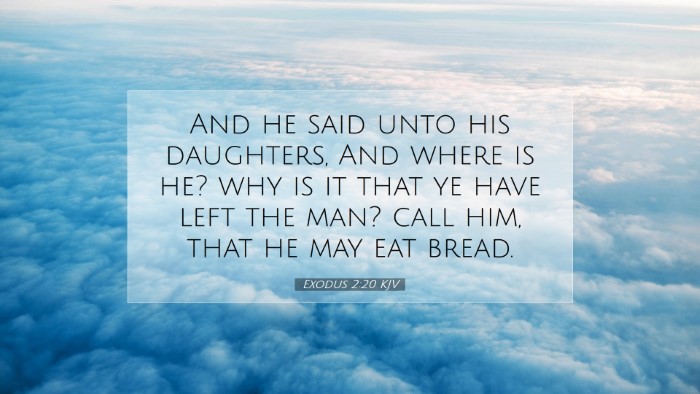Exodus 2:20 Commentary
Exodus 2:20 states: "And he said unto his daughters, And where is he? Why is it that ye have left the man? Call him, that he may eat bread." This passage captures a significant moment in the life of Moses and provides teaching opportunities for spiritual leaders and scholars alike.
Contextual Analysis
The context of Exodus 2 describes Moses' flight from Egypt after killing an Egyptian who was beating a Hebrew. He goes to Midian, where he encounters the daughters of Jethro. The verse in question reveals Jethro's concern for the welfare of Moses and offers insights into hospitality, community, and divine providence.
The Character of Jethro
- Hospitality: Jethro’s inquiry into why his daughters left Moses signifies the importance of hospitality in the Near Eastern culture. Jethro, known as the priest of Midian, exemplifies the graciousness expected of leaders.
- Leadership and Care: The call for Moses to be brought into their home reflects Jethro’s awareness of the human condition. As a leader, he recognized the value of individuals in times of need.
Moses as a Type of Christ
In Biblical typology, Moses often serves as a precursor to Christ. His flight from Egypt represents a parallel to the salvation story, foreshadowing Jesus’ own escape from danger in His early life. Jethro’s invitation for Moses to share bread can be seen as a metaphor for spiritual nourishment found in Christ.
Spiritual Lessons from Exodus 2:20
This verse encapsulates various profound spiritual lessons:
- Seeking Community: The act of inviting Moses to dine signifies the essential nature of community within faith. Believers are called to foster relationships with one another.
- Recognizing Divine Encounters: Jethro’s actions highlight the providence of God in the lives of His people. The arrival of Moses was not a coincidence; it was God’s orchestration.
- The Importance of Hospitality: This verse underscores the cultural and scriptural commandment to extend hospitality, a virtue enviably demonstrated by Jethro. As theologians, readers are reminded to examine their own practices in offering hospitality.
Commentary Perspectives
Matthew Henry’s Perspective
Matthew Henry expounds on this verse by emphasizing Jethro's interest in Moses as a noble example of good character and moral rectitude. He notes that this interaction sets a foundation for Moses' future leadership by highlighting God’s provision in placing Moses in a supportive family environment.
Albert Barnes’ Insights
Albert Barnes takes a more contextual approach, suggesting that this inquiry into Moses’ whereabouts demonstrates a cultural expectation for accountability and communal responsibility. He points to the notion that Moses was recognized for his distinct character and that Jethro's question about him points to a larger theme of divine selection for leadership among God's people.
Adam Clarke’s Historical View
Adam Clarke provides a historical insight surrounding the customs of the time, shedding light on the significance of shared meals in establishing bonds and relationships. He interprets Jethro's eagerness to include Moses at his table as integral to forming alliances and community, positioning this act as pivotal for the future role Moses would play in Exodus.
Application for Today’s Believers
For pastors and theologians today, Exodus 2:20 offers rich ground for practical application:
- Encouraging Hospitality: How can contemporary believers embrace the spirit of hospitality in their congregations?
- Recognizing Divine Encounters: In what ways might God be orchestrating encounters that can change the course of lives in our communities?
- Community Responsibility: How are we held accountable in our communities, and what role does each individual play in enhancing the spiritual growth of others?
Concluding Thoughts
Exodus 2:20 is a verse suffused with meaning and rich in spiritual significance. The discussion surrounding this passage invites deeper contemplation on God's providence, the nature of community, and the characteristics of leadership rooted in faith and hospitality. As we reflect on Jethro’s invitation to Moses, let it inspire us to foster relationships that mirror these biblical values in our own lives.


